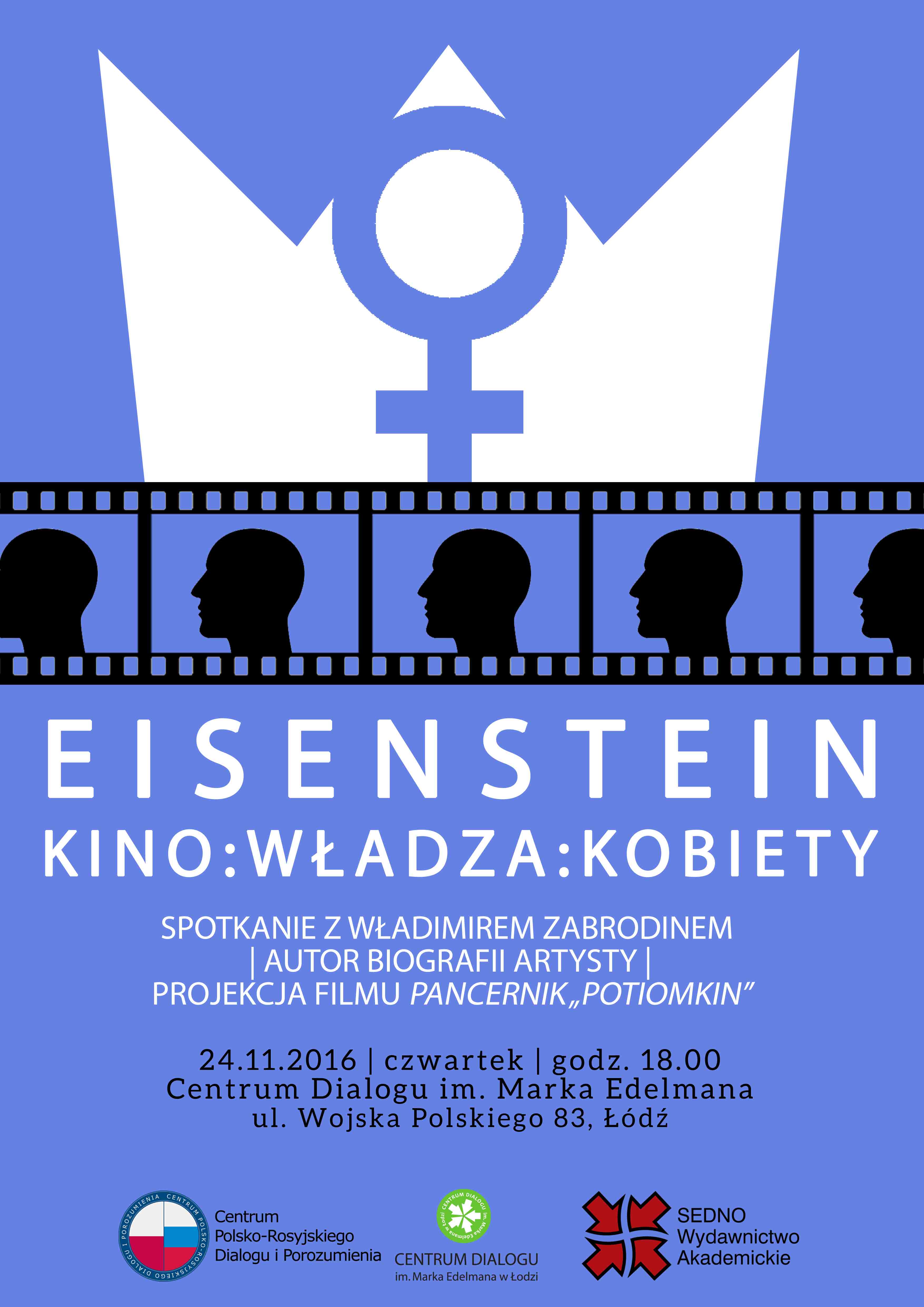Eisenstein: cinema, power, women / Łódź
Centre for Polish-Russian Dialogue and Understanding, the Marek Edelman Dialogue Centre and the SEDNO Academic Publishing House organized a meeting with Vladimir Zabrodin, the author of the biography of Sergei Eisenstein, and to the screening of the film Battleship "Potemkin". Karol Jóźwiak, an art historian, film expert, and PhD student at the Institute of Contemporary Culture at the University of Lodz also took part in the discussion.
Sergei Eisenstein was a Russian director, screenwriter, editor, cinematographer, film and theater set designer, and a movie theoretician. The leading representative of socialist realism in movies. His work has had a great impact on the directors of many generations – especially the film Battleship "Potemkin" (1925), which is considered one of the masterpieces of world cinema. He regarded montage as the most important means of expression. Working in the theater, he discovered the basic rules of "emotional montage", which was based on building tension and concentration of the artistic expression in close relation to the audience's reactions. He was a student of Vsevolod Meyerhold.
Vladimir Zabrodin is a Russian film expert, cinema historian, a graduate of VGIK (The Gerasimov Institute of Cinematography). Author and editor of over one hundred articles, books and selections of documents published on the basis of queries in the state and private archives. Editor of magazines on film history and theory, among others a series CINEMA, Od idei do filma, Kinoglobus. He is one of the leading contemporary experts on the work and life of Sergei Eisenstein. The author of the book Eisenstein: kino, władza, kobiety [Eisenstein: cinema, power, women]
Book Eisenstein: kino, władza, kobiety.
The biography of the film director Sergei Eisenstein is a portrait of a man and an artist in a time and place difficult for artists. Eisenstein – the creator of the propaganda, yet splendid "revolutionary trilogy" (Strike, Battleship "Potemkin", October) and the historical, grandiose (and also propagandist) movies about Alexander Nevsky and Ivan The Terrible – was a cinema theoretician and an excellent montage practitioner. Zabrodin builds a biographical story basing on dozens of documents – letters, notes, memories, articles. He shows (in an analytical way) how difficult it was for Eisenstein to meet all the roles he was supposed to; a son, a husband, a friend, an academic lecturer, a judge in other people's matters and the accused in his own. Most of Eisenstein's quoted texts appear in this book for the first time (also in Russian), while some others waited long to appear in the full version.
Co-publishing: SEDNO Academic Publishing House and Centre for Polish-Russian Dialogue and Understanding
